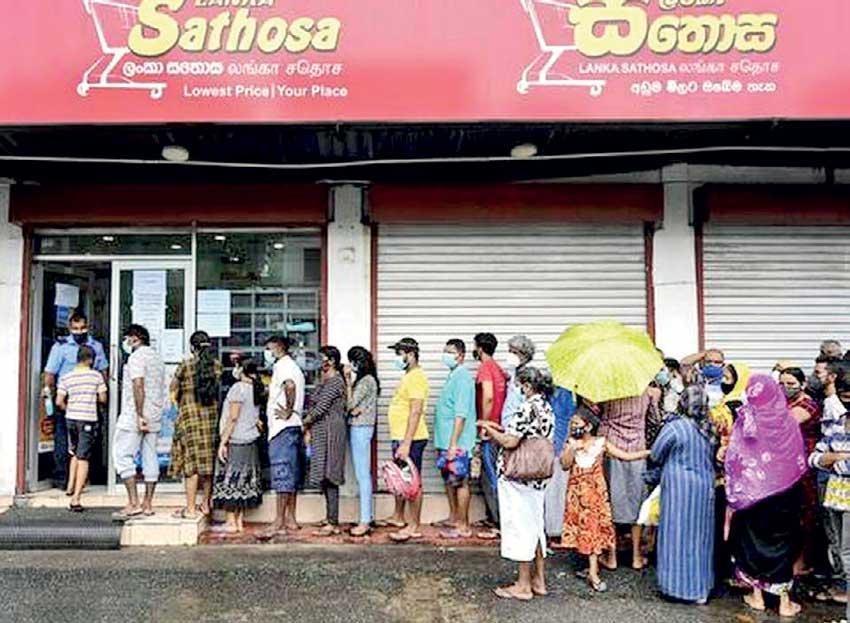Reply To:
Name - Reply Comment

By Shabiya Ali Ahlam
A section of the political fraternity has repeatedly called for Sri Lanka to opt for rationing system for food and fuel to ensure equal access.
While it may seem as the most fitting method given the shortages faced in the country, it will by no means sort the balance of payment issue that is mounting, independent economic think-tank Advocata Institute said.
The Colombo-based think tank cautioned that should the government bring in rationing as a policy measure, it will ultimately prove futile and would only address the outward manifestation of a larger problem in the economy, but not its origin.
“The proposed imposition of quotas will damage the economy even further and increase the suffering of citizens. The government needs to address the fundamental problem; tighten monetary and fiscal policy, free the currency and draw up a proper recovery plan that can prevent even further deterioration,” asserted Advocata in a statement to the media yesterday.
While the tightening of monetary and fiscal policies will undoubtedly cause a shock at the initial stages, the move will then allow trade and economic activity to resume.
“The alternative however is far worse; suppressing the symptoms of the disease will also stifle economic activity resulting in a slow, certain impoverishment with no hope of growth,” cautioned the think-tank.
The coupon system of quotas and rationing are not just cumbersome and costly to implement, but it is also prone to corruption. The reason being, the system will inevitably create black markets as coupons obtained by those best placed to acquire them are traded, Advocata pointed out.
Since the Covid-19 outbreak which continues to hamper economic activities, Sri Lanka retaliated by imposing an ever increasing web of controls on imports. Despite the effort, the trade deficit of the country remains stubbornly high.
In the period January-October 2021 imports rose by 26.5 percent and the overall trade balance grew by 34 percent to US$ 6,498m.
The improvement in export performance which increased 22.1 percent did not provide the expected breathing space. This according to Advocata affirms that the issue is not with exports but with imports caused by excess demand within the economy.
Matters turned from bad to worse for the Sri Lankan economy when the government decided to steer forward with extremely loose monetary policy by artificially holding down interest rates through interventions by the financial sector regulator.
Adding to the woes is the large fiscal deficit that is financed by CBSL credit or money printing.
“It is these two factors that are fueling domestic demand and as a result the spiral in imports. Curing the malady requires addressing its root, any other solution will at best only provide temporary relief,” Advocata said.